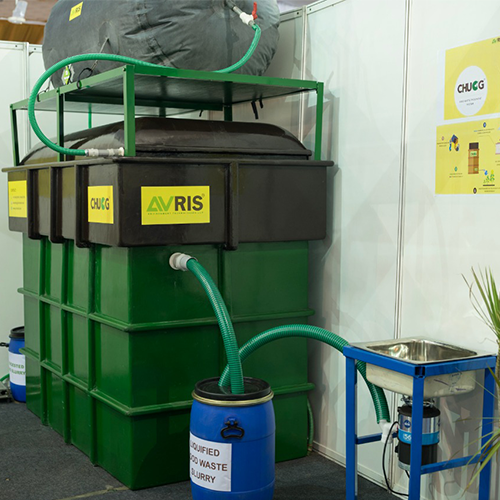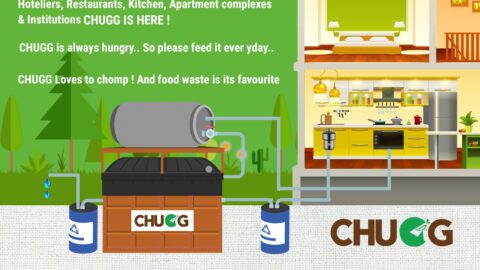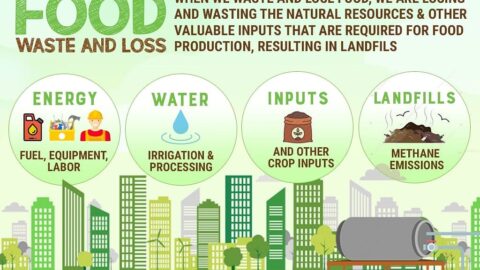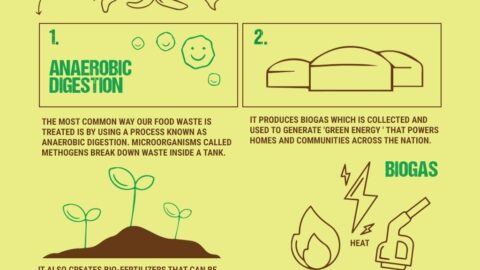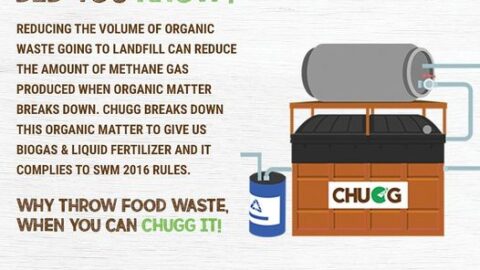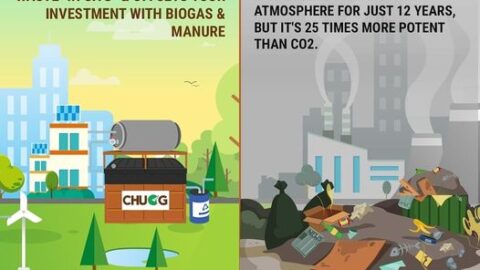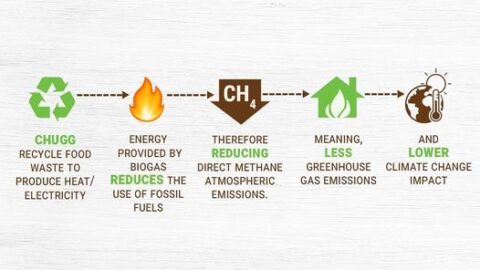Can you believe when I say that you can save money with food and kitchen wastes? How rejoicing will it be if there is no shortage of cylinders in your home? Yes, this is all possible by producing biogas using CHUGG- an innovative food waste treatment system in India. Using CHUGG you can make a free cooking gas by digesting wet organic waste in a sealed chamber that too in your backyard space.
The alarming climatic changes and surging fuel prices lead to research for renewable energy sources. Compared to other renewable energies, biogas is distinguishable from other renewable energies as it is capable of producing fertilizers and water can be used in irrigation. In many cities, kitchen wastes are dumped in landfills which causes serious health issues like flu, malaria, cholera typhoid, etc. Adding to this it also pollutes groundwater and surface stimulating the breeding of flies, mosquitoes, rats, and other disease-bearing vectors. Also, it releases disgusting odor & methane which is a major greenhouse gas contributing to global warming. Installing an innovative food waste treatment system help reduce greenhouse gas emissions by converting organic kitchen scraps to renewable energy and soil conditioner.
Biogas does not have any terrestrial curbs as it is easy to produce and does not require any advanced technologies. It could call forth the domestic green revolution, only if we allow it. Not only that, but it also acts as a sovereign cure for the food waste treatment system. Biogas can be in the form of electricity, liquid transportation fuels, and renewable gas.
But what is biogas?
Biogas is produced by the breakdown of organic matter in the absence of oxygen (anaerobically), primarily consisting of methane and carbon dioxide. It can be produced from raw materials such as agricultural waste, manure, municipal waste, plant material, sewage, green waste, or food waste.
When the biogas is filtered to remove the hydrogen sulfide, the resulting mixture can be burned as an energy source for cooking, lighting, or heating water or space. When compressed it can be used as fuel for vehicles. On a commercial scale, biogas can be used to generate electricity or even refined and fed into the gas grid.
Among different types of organic wastes, food waste and its impact on the environment is a major concern globally. Occupies the highest potential in terms of economic exploitation as it contains high amounts of carbon and can be efficiently converted into biogas and organic fertilizer. Calorific and nutritive value to microbes is so high in kitchen wastes where the efficacy of producing methane can be escalated in several orders of enormity.
Thanks to the glowing sun and blooming plants, which makes the production of biogas possible without the fear of the surge and decline of fossil fuels. The carbon dioxide that is released into the atmosphere when it burns is nil than what was strained from the atmosphere when the organic matter was first grown as biogas has zero net greenhouse emissions.
Methane is produced when organic matter breaks down in the presence of oxygen. It has been estimated approximately that each year between 590 million and 800 million tonnes of methane is released into the atmosphere. This is bad news for the climate, methane is a far more potent greenhouse gas than Carbon Dioxide. When the fuel is burned methane is seized and transformed to carbon dioxide in the biogas system. Anyway through natural degradation, biogas was going to end up in the atmosphere.
BENEFITS OF BIOGAS TECHNOLOGY:
As mentioned earlier CHUGG- innovative food waste treatment system is capable of producing renewable energy and also transforming organic wastes to very high-quality fertilizer known as Bio-Slurry. Biogas improves hygienic conditions by reduction of pathogens. It also provides environmental advantages by protecting air, water, soil, etc. Making biogas from organic waste recycling is a good way to manage potentially harmful organic wastes. Cooking with biogas does not produce smoke so it is ideal for the home, and it reduces the need to cut down trees for firewood. Biogas provides instant heat upon ignition, no preheating or waiting time is required.
On the other hand, the organic matters used in biogas digesters are basically a waste product. Therefore, this acts as a cure for food waste treatment. All of this can help to develop increased energy independence, build resilience and save money. Like other fuels, biogas must be given high attention and should be used duly. Biogas does no harm compared to fossil fuels. With due diligence and proper usage of biogas, we can create wonders.

